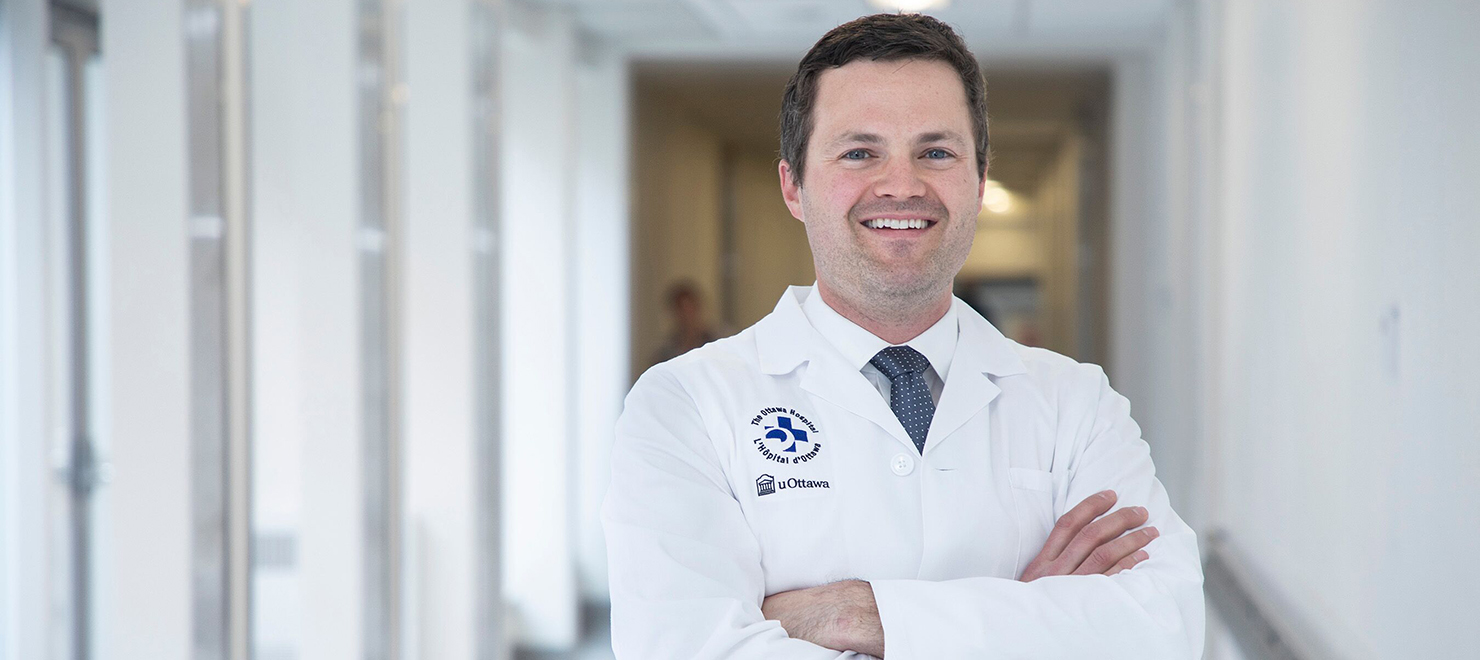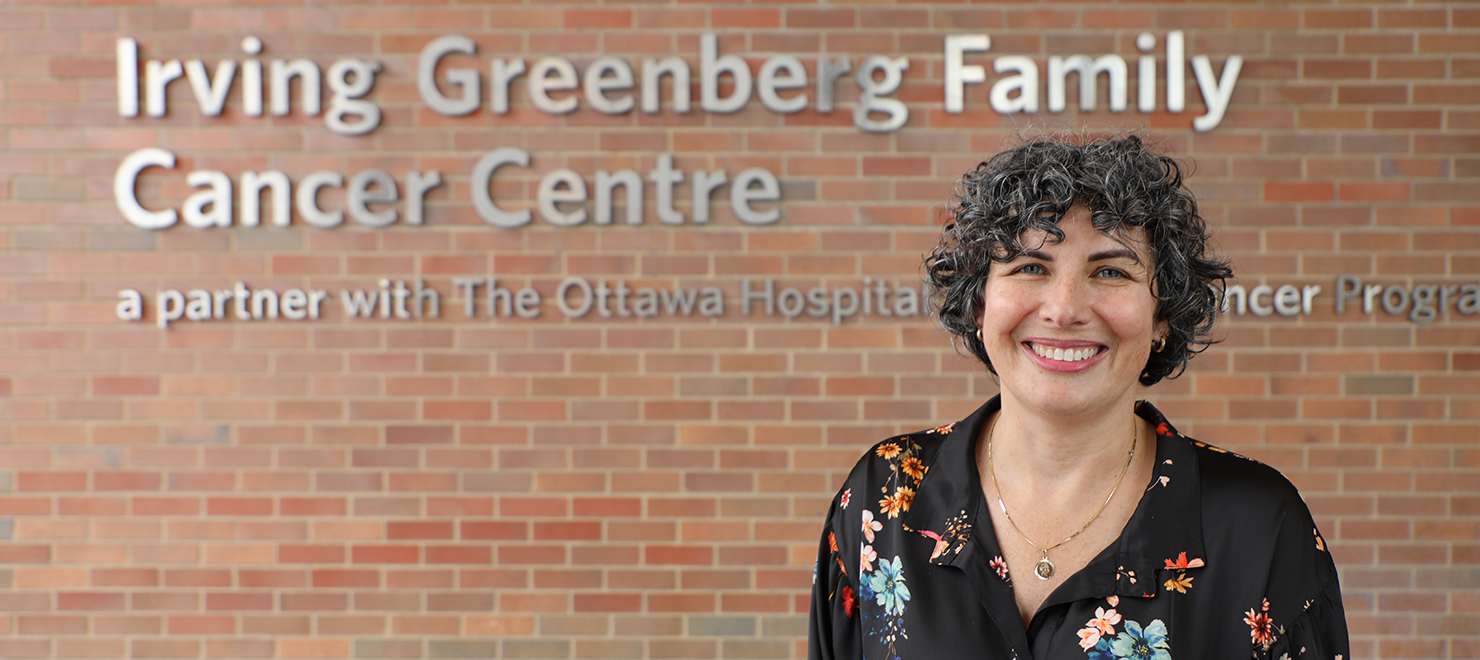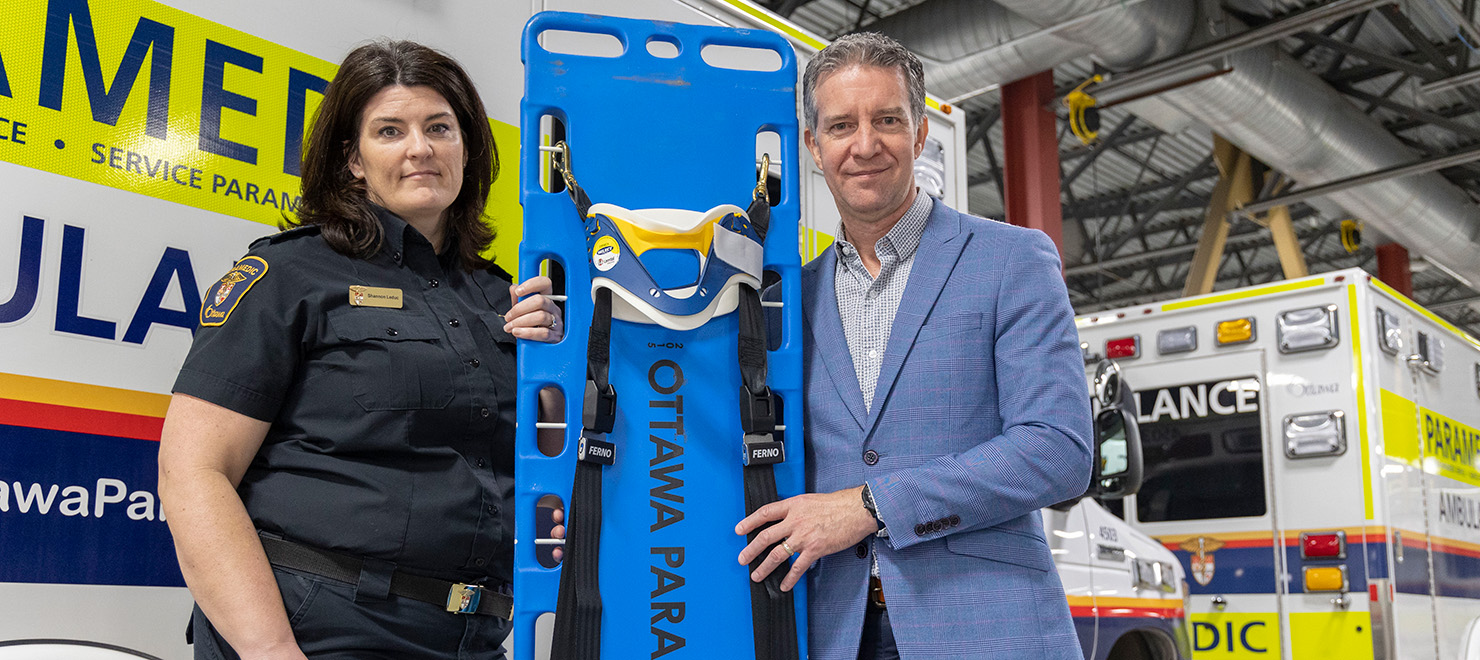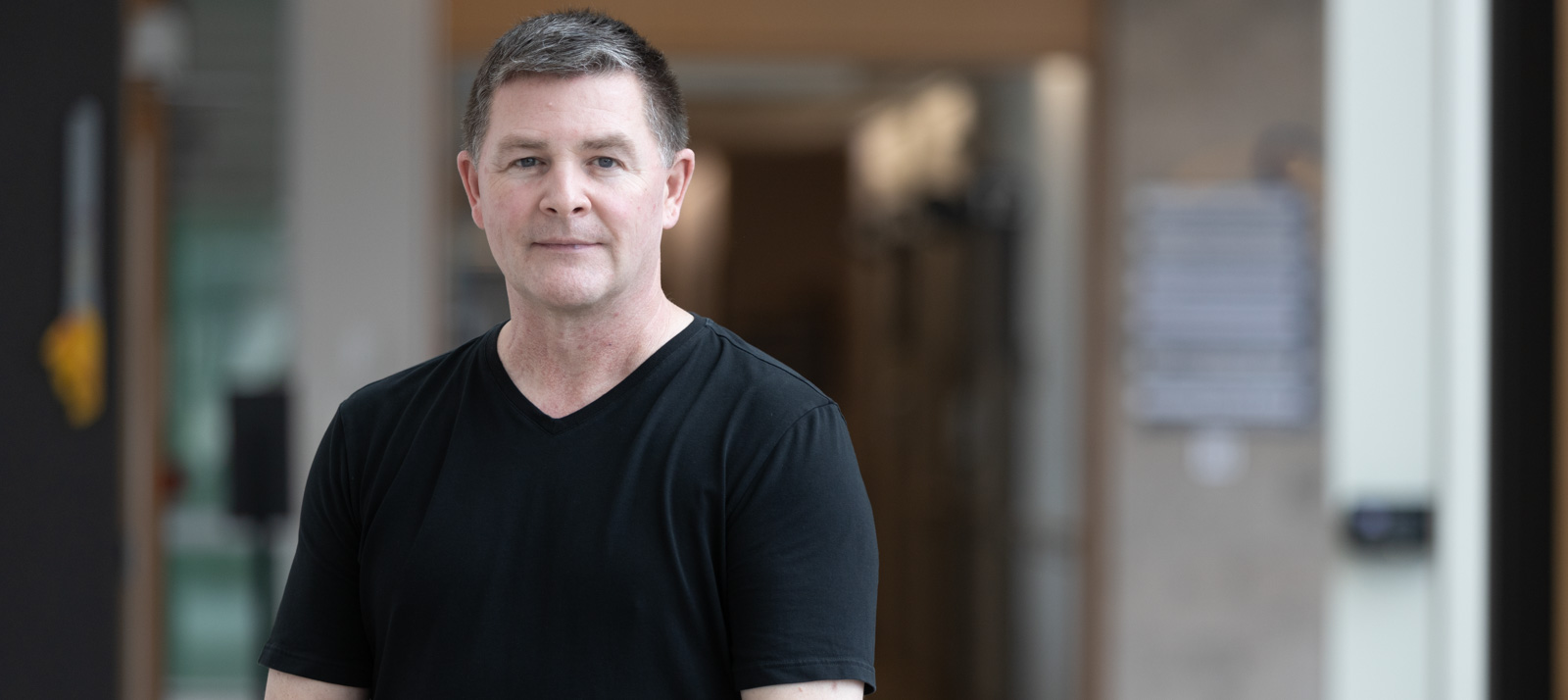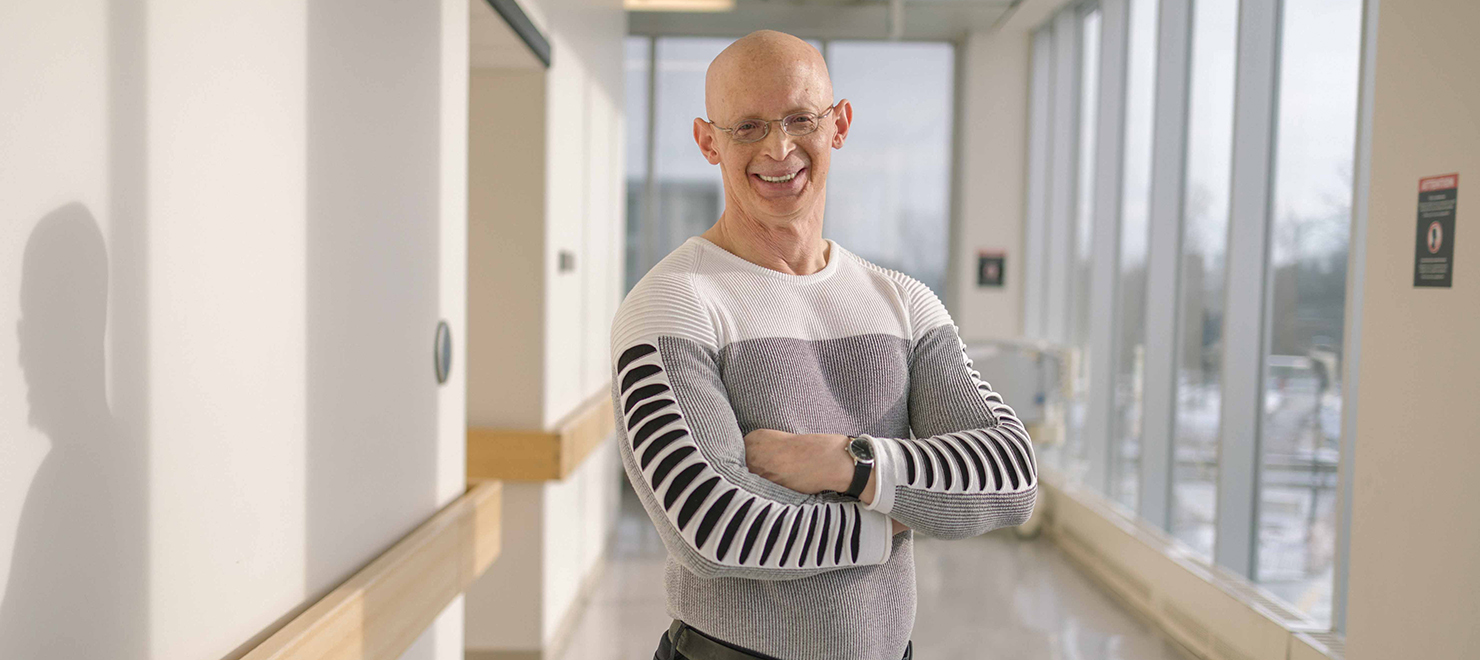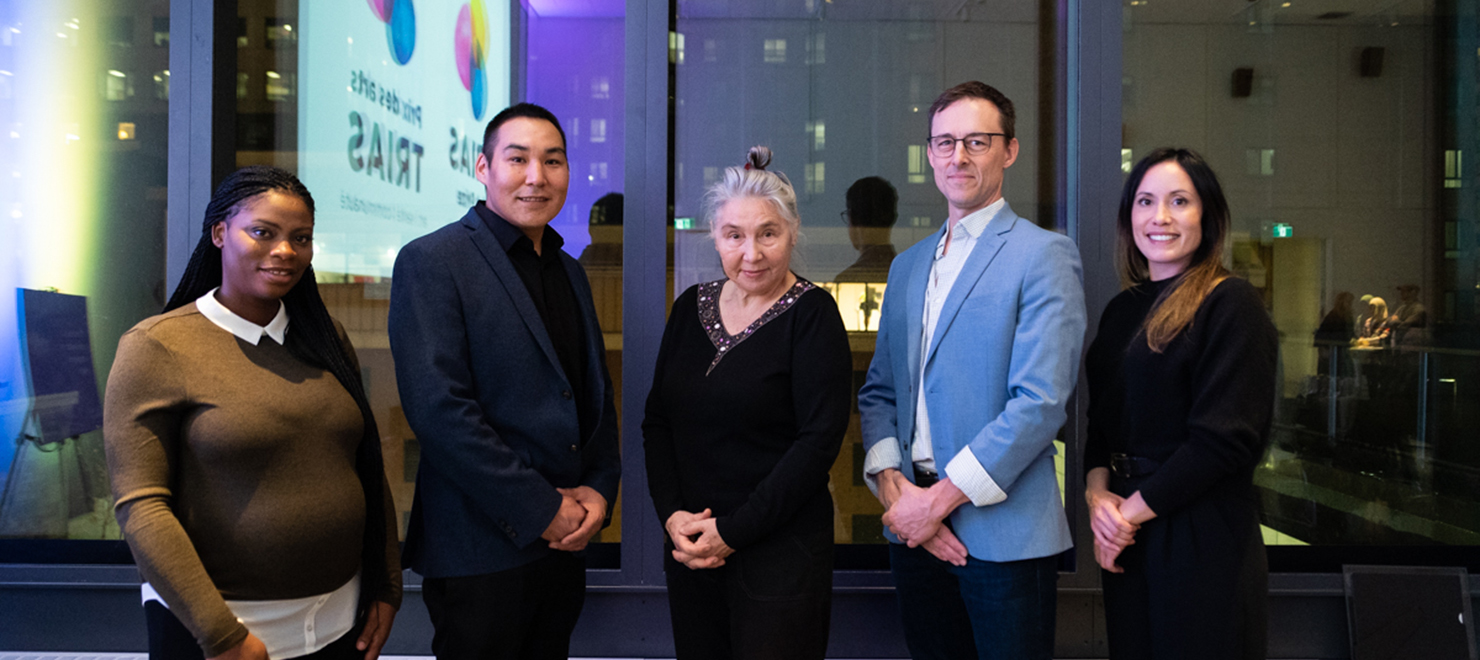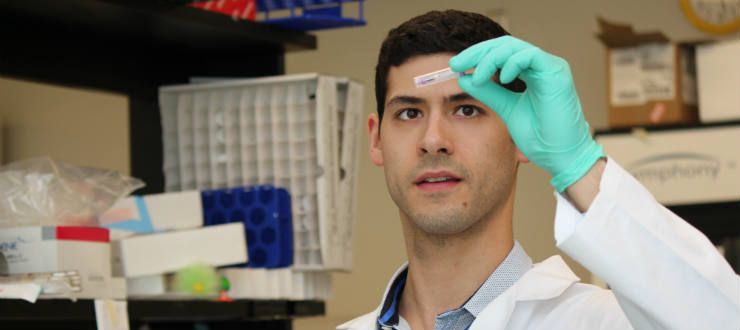
Marc-Olivier Deguise hopes to change the way that specialists and researchers think about a childhood muscle-wasting disease called spinal muscular atrophy. Traditionally considered a disease of the nerves controlling the muscles, Deguise found that this condition also affects other organs. He was awarded the hospital’s 2017 top research trainee award for his work.
Growing up as an only child with a peanut allergy and a concerned mother, Marc-Olivier Deguise spent a fair amount of time in doctors’ offices. However, he soon realized that he was one of the lucky kids in the waiting room – his condition was easy to manage.
“At that time, I knew that when I grew up I wanted to do something that would help children,” said Deguise, who received the Worton Researcher in Training Award 2017 at The Ottawa Hospital Gala on Oct. 28.
This desire to help children led him to join Dr. Rashmi Kothary’s lab at The Ottawa Hospital during the fourth year of his bachelor of science at the University of Ottawa. Under Dr. Kothary’s supervision, Deguise studied a genetic muscle-wasting disease that affects mainly young children, called Spinal Muscular Atrophy, or SMA. Now, five years later, he has helped make a major discovery that has shaken up what is known about this disease.
It was thought that SMA affected only the nerves controlling the muscles, but Deguise’s discovery suggests that it also impacts the immune system.
During a routine experiment, Deguise happened to notice that the spleens of mouse models of SMA were 20 times smaller than normal. The spleen removes certain bacteria and viruses from the blood, and is an important part of the immune system. Deguise also observed that SMA affected the development of infection-fighting cells called T-cells in the thymus, another immune organ.
“It was a big surprise,” said Deguise. “It started with one observation, and now it’s a big research project.”
The team’s results were published in the journal Human Molecular Genetics. Around the same time, two separate groups found similar results in other mouse models of SMA, which supported their findings.
“The research fairy brought us some luck,” said Deguise. “Dr. Kothary has always believed that SMA affects multiple organs. Our finding that SMA may not just be a muscle nerve disease is now slowly changing the landscape of our field. It is nice to see that more and more researchers are accepting this idea.”
Deguise’s next step is to study the immune defects in human patients with SMA. He also wants to learn whether these defects actually keep the immune system from doing its job, or worsen the symptoms of SMA.
“If I can contribute to reducing the time SMA patients spend in hospitals, improving their quality of life or even the development of new therapies through my research, that would be really rewarding,” he said.
In addition to working towards his PhD, Deguise is also training to be a medical doctor.
“In medicine you get to help people at a local level,” he said. “But if you do research and you find good things that can help, then you can help even more people at a global level.”
Deguise’s research is supported by generous donations to The Ottawa Hospital. His research is also supported by the Canadian Institutes of Health Research and a Queen Elizabeth II Graduate Scholarship in Science and Technology.

Support patient care and research at
The Ottawa Hospital
You might also like…
Do you have a surgery coming up? Here are five “prehab” tips to help you recover faster
You’ve probably heard about rehabilitation, but what about “prehabilitation”? Prehab is all about getting your body and mind in top shape before surgery so you can enjoy a smoother, quicker recovery. Discover five essential prehab strategies from researcher Dr. Daniel McIsaac.
By thinking differently, this research team is improving the lives of people with cancer
Taking a different approach to clinical trials, the REthinking Clinical Trials (REaCT) program aims to answer some of the most important and practical questions that affect both patients with cancer and our health-care system. Find out what sets REaCT apart and makes the program so special to participants like Beth.
Does this backboard look comfortable to you?
Imagine this: You’re flat on your back, strapped tight to a rigid backboard, unable to move at all. Fortunately, this is no longer the reality for most low-risk trauma patients when they’re brought to hospital in our province. Find out how researchers at The Ottawa Hospital teamed up with paramedics across Ontario to make the journey a lot more comfortable.
Ever have a tough time making a medical decision? These tools can help you
When faced with a medical condition, there may not be one clear path forward — but we have something to help you with that. The Ottawa Hospital is home to the largest collection of decision aids in the world, covering everything from various cancers to depression to allergies.
New Research Chair in Gay Men’s Health is setting out to break down barriers to care
As both a researcher and a gay man, Dr. Paul MacPherson knows all too well the stigma that gay men often face in the health-care system. Now, as the Clinical Research Chair in Gay Men’s Health at The Ottawa Hospital and the University of Ottawa, he’s on a mission to make quality health care more accessible to this often overlooked patient population.
Healing through art: Congratulations to the winners of the TRIAS Art Prize
Did you know that art has the power to heal? This year, The Ottawa Hospital and the Ottawa Art Gallery launched the TRIAS Art Prize to recognize the role of artists in healing and wellness. We recently announced the winners, and you’ll see their artwork around the hospital in the new year. Get a sneak preview today.


 To reset, hold the Ctrl key, then press 0.
To reset, hold the Ctrl key, then press 0.
